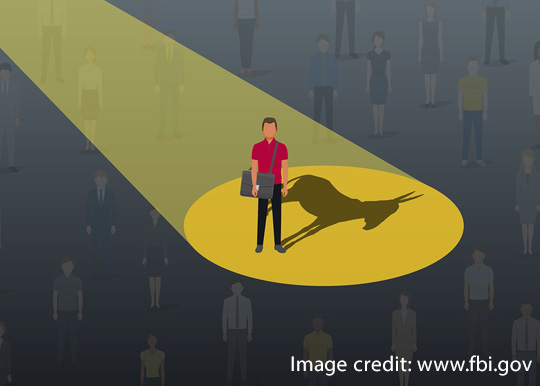Money Mule Scams – Everything You Need to Know

(3 Minute Read) – This is the second week of August Against Fraud, a 4-part series where we’ll break down a different scam every week. Tune in each week to discover how each scam works, how to beat it, and what to do if you’ve fallen victim.
Click here to see Week 1 – Grandparent Scams
One scam has popped up recently as a favorite of fraudsters in the Northwest: the money mule scam. This scam involves duping someone into transporting fraudulent funds for bad actors. One reason the scam might be catching on is that it’s versatile. As seen in recent examples, a mule scam can be perpetrated by anyone from an average, everyday person to an authority figure whose job it is to prevent people from committing crimes.
This post will help you understand what a money mule scam is, how to recognize one, how to stay safe, and what to do if you or someone you know has experienced a money mule scam.
How does a money mule scam work?
A money mule scam targets an unsuspecting person to transport money obtained illegally. Someone will generally reach out to you offering to send you send a large sum of money. You can keep some of the money for yourself; all you have to do is help transport the rest of the money to someone else. While it might seem like a good opportunity to make a buck, it could make you complicit in fraud.
Acting as a money mule supports criminal activity and could land you in hot water with the law. Don’t become a money mule.
What are common money mule scams?
Money mule scams can take on several forms. What they all have in common is the “mule” who transports money obtained fraudulently. Look out for these common examples of money mule scams:
- The Work-from-Home Mule Scam: A job posting offers easy money in exchange for reshipping packages, buying gift cards or Postal Money Orders, or transferring money. As a “bonus” to rope you in, they’ll say you can do it all right from the comfort of your own home.
- The Confidence Mule Scam: A person or business you don’t know offers you a cut/commission if you transfer money for them.
- The Lottery Mule Scam: A person informs you that you have a prize waiting for you! All you need to do in order to collect your winnings is transfer some money.
- The Romance Mule Scam: A person you’ve met online or through an app makes you believe they are romantically interested in you. After a phase of building rapport and gaining your trust, they ask you to transfer money and/or packages for them.
The good news is there are measures you can take to protect yourself against money mule scams.
How can I protect against money mule scams?
Every successful money mule scam requires a cooperative target, or “mark.” Once you know how to protect yourself, you can avoid becoming that mark. Here are a few tips to protect yourself from getting involved in a money mule scam – and help foil the fraudsters:
- Steer clear of strangers. Never engage in financial transactions with strangers. Refrain from responding, clicking links, or interacting in any way with strangers soliciting you for help.
- Watch out for jobs that sound too good to be true. Don’t take a job that promises easy money and involves sending or receiving money or packages. It might make you a mule.
- Beware convenient work-from-home jobs for quick cash. If you see a work-from-home opportunity that asks you to transfer money, it might make you a mule. Vet the offer with a trusted family member or friend. Also, contact your Better Business Bureau chapter or access your state’s corporation directory to help verify whether the business is legitimate.
- See something? Say something. If you catch wind of a money mule scam, report the fraudulent activity as soon as possible to help authorities put a stop to it.
Finally – if anyone asks you to transport money, think twice before you accept the offer. Vet the sender, the recipient, and the circumstances. Good-hearted people can find themselves wrapped up in fraud trying to do the right thing.
For more information, read this writeup from the United States Postal Inspection Service (USPIS).
What if I’m the victim of a money mule scam?
If you are the victim of a money mule scam:
- Contact the financial service you used to send the money in order to cancel the transaction if able, and report the fraud to them.
- Immediately contact your local police or the FBI to report the scam – click here.
- If the scam involved the mail service, report the scam with the United States Postal Inspection Service (USPIS): click here, or call 1-877-876-2455.
- Report the fraud to the Federal Trade Commission – click here.
Now you have the knowledge to stay safe and steer clear of money mule scams. Don’t keep it to yourself! As a community member, share this information with the people in your life so they can keep themselves clear, clear, and beat the fraudsters!
This is just the second week of our August Against Fraud series, where we break down a new scam every week throughout August. Stay tuned every Monday in August to learn how to stop fraud in its tracks. And follow our social media feeds all month long (like Facebook and Instagram) for more helpful fraud-busting information, quizzes, and other insights to stay safe and well. We’ll see you next week.